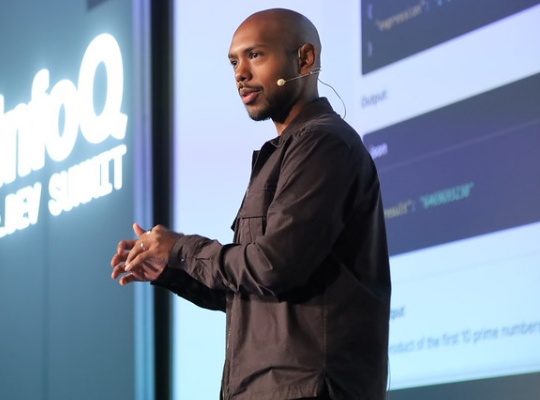Codetown
Codetown ::: a software developer's community
Anyone had experience with time-saving toolkits for Mobile Development?
I've done both iOS programming for iPad/iPhone and Android programming. All in the native platforms - Objective-C for iOS and Java for Android. Conversion between the two is much easier than porting to basic or an other non-C-derived language, but still takes no small amount of effort.
There are toolkits that claim to make the development and porting much easier. Specifically, MonoTouch by Novel and a tool called Sencha-touch.
Does anyone have an experience with these?
My past experience with toolkits that claim to save time has been much to the opposite. Generally there is less initial development time, but maintainence becomes clumsy and cumbersome.
Any thoughts?
Tags:
Replies to This Discussion
-
Permalink Reply by Kevin Neelands on May 28, 2012 at 8:28am
-
Have you used phonegap? And if you did. did it save man-hours in the long run?
-
-
Permalink Reply by Richard Dean on May 28, 2012 at 11:17am
-
Yes, I would also like to hear about other's experience with PhoneGap.
Kevin Neelands said:Have you used phonegap? And if you did. did it save man-hours in the long run?
-
-
Permalink Reply by Jackie Gleason on May 28, 2012 at 2:10pm
-
Phone gap and titanium are good although you would have to follow their convention. I would say givin you are used to working in a c-based language you just use c then just implement the UI in objective-c or java. Or even better use a open gl es based UI library then it will run on both (basically what some frameworks do). I have been toying lately with the idea of using node native modules compiled for arm but I am still working on that.
P.S. you can compile objective c natively on android but not all the cocoa libraries (uikit) are open sourced yet. -
-
Permalink Reply by Vlad Sanchez on May 28, 2012 at 2:21pm
-
Check out Corona. Although it is mostly used for game development, I've known many people using it for database applications lately. I've attended their last Meetup and it was an inspiring experience.
I personally was looking to overcome the fragmentation issues. After the meetup I realized there are no silver bullets. It's even a topic many people avoid talking about.
I hope this helps. Try Corona, it's free to try and very cheap to use commercially.
-
-
Permalink Reply by Jackie Gleason on May 28, 2012 at 6:36pm
-
Corona looks interesting but -1 for needing to buy and -1 for not having a responsive website
-
Notes
Welcome to Codetown!
 Codetown is a social network. It's got blogs, forums, groups, personal pages and more! You might think of Codetown as a funky camper van with lots of compartments for your stuff and a great multimedia system, too! Best of all, Codetown has room for all of your friends.
Codetown is a social network. It's got blogs, forums, groups, personal pages and more! You might think of Codetown as a funky camper van with lots of compartments for your stuff and a great multimedia system, too! Best of all, Codetown has room for all of your friends.
Created by Michael Levin Dec 18, 2008 at 6:56pm. Last updated by Michael Levin May 4, 2018.
Looking for Jobs or Staff?
Check out the Codetown Jobs group.
InfoQ Reading List
Presentation: AI Innovation in 2025 and Beyond

Tejas Kumar explains the trajectory of AI innovation, moving beyond the hype of 2024’s RAG into the "year of agents" in 2025. He shares how technologies like the Model Context Protocol (MCP) will dismantle traditional web UX, allowing developers to build tool-based ecosystems where AI handles everything from shopping to calendar management, prioritizing human life over digital navigation.
By Tejas KumarRivet Launches the Sandbox Agent SDK to Solve Agent API Fragmentation

Rivet Sandbox Agent SDK provides a universal API for coding agents, allowing developers to work with different agent runtimes like Claude Code, Codex, OpenCode, and Amp without rewriting their integration for each one. It addresses the fragmentation across agent APIs, session handling, and streaming formats that has historically made agent integrations complex and difficult to maintain.
By Sergio De SimoneSpring News Roundup: Second Milestone Releases of Boot, Security, Integration, Modulith, AMQP

There was a flurry of activity in the Spring ecosystem during the week of February 16th, 2026, highlighting the second milestone releases of: Spring Boot; Spring Security; Spring Integration; Spring Modulith; and Spring AMQP; along with the first milestone releases of Spring Session, Spring for Apache Kafka and Spring LDAP.
By Michael RedlichDatabricks Introduces Lakebase, a PostgreSQL Database for AI Workloads

Databricks has recently announced the general availability of Lakebase, a serverless, PostgreSQL-based OLTP database that scales compute and storage independently. Lakebase is designed to integrate with the Databricks platform, providing a hybrid solution that combines both transactional and analytical capabilities.
By Renato LosioTypeScript 6 Beta Released: Developers Invited to Upgrade to Prepare for the Go Rewrite

The TypeScript team recently released TypeScript 6 in beta. The release serves as a key transition point rather than a full feature release. It focuses on technical debt elimination and standardization, preparing the ecosystem for TypeScript 7, a rewrite of the TypeScript code in Go that seeks to address core performance issues that ballooned over time.
By Bruno Couriol
© 2026 Created by Michael Levin.
Powered by
![]()